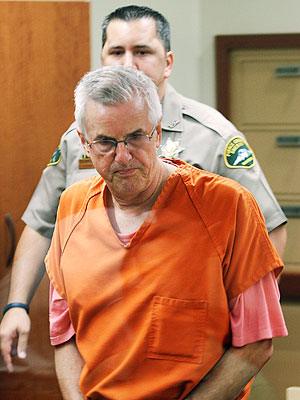NEW YORK (Reuters) - Investors typically sell stocks to cut their losses at year end. But worries about the "fiscal cliff" - and the possibility of higher taxes in 2013 - may act as the greatest incentive to sell both winners and losers by December 31.
The $600 billion of automatic tax increases and spending cuts scheduled for the beginning of next year includes higher rates for capital gains, making tax-loss selling even more appealing than usual.
Tax-related selling may be behind the weaker trend in the shares of market leader Apple , analysts said. The stock is down 20 percent for the quarter, but it's still up nearly 32 percent for the year.
Apple dropped 8.9 percent in this past week alone. For a stock that gained more than 25 percent a year for four consecutive years, the embedded capital gains suddenly look like a selling opportunity if one's tax bill is going to jump sharply just because the calendar changes.
"Tax-loss selling is always a factor (but) tax-gains selling has been a factor this year," said Paul Mendelsohn, chief investment strategist at Windham Financial Services in Charlotte, Vermont.
"You have a lot of high-net-worth individuals in taxable accounts, and that could be what's affecting stocks like Apple. If you look at the stocks that people have their largest gains in, they seem to be under a little bit more pressure here than usual."
Of this year's top 20 performers in the S&P 1500 index, which includes large, small and mid-cap stocks, all but four have lost ground in the last five trading sessions.
The rush to avoid higher taxes on portfolio gains could cause additional weakness.
The S&P 500 ended the week up just 0.1 percent after another week of trading largely tied to fiscal cliff negotiation news, which has pushed the market in both directions.
A PAIN PILL FROM THE FED?
Next week's Federal Reserve meeting could offer some relief if policymakers announce further plans to help the lackluster U.S. economy. The Federal Open Market Committee will meet on Tuesday and Wednesday. The policy statement is expected at about 12:30 p.m. on Wednesday after the conclusion of the meeting - the Fed's last one for the year.
Friday's jobs report showing non-farm payrolls added 146,000 jobs in November eased worries that Superstorm Sandy had hit the labor market hard.
"After the FOMC meeting, I think it's going to be downhill from there as worries about the fiscal cliff really take center stage and prospects of a deal become less and less likely," said Mohannad Aama, managing director of Beam Capital Management LLC in New York.
"I think we are likely to see an escalation in profit-taking ahead of tax rates going up next year," he said.
MORE VOLUME AND VOLATILITY
Volume could increase as investors try to shift positions before year end, some analysts said.
While most of that would be in stocks, some of the extra trading volume could spill over into options, said J.J. Kinahan, TD Ameritrade's chief derivatives strategist.
Volatility could pick up as well, and some of that is already being seen in Apple's stock.
"The actual volatility in Apple has been very high while the market itself has been calm. I expect Apple's volatility to carry over into the market volatility," said Enis Taner, global macro editor at RiskReversal.com, an options trading firm in New York.
Shares of Apple, the largest U.S. company by market value, registered their worst week since May 2010. In another bearish sign, the stock's 50-day moving average fell to $599.52 - below its 200-day moving average at $601.38.
"There's a lot of tax-related selling happening now, and it will continue to happen. Apple is an example, even (though) there are other factors involved with Apple," Aama said.
While investors may be selling stocks to avoid higher taxes in 2013, companies may continue to announce special and accelerated dividend payments before year end. Among the latest, Expedia
To be sure, the big sell-off in stocks following the November 6 election was likely related to tax selling, making it hard to judge how much more is to come.
Bruce Zaro, chief technical strategist at Delta Global Asset Management in Boston, said there's a decent chance that the market could rally before year end.
"Even with little or spotty news that one would put in the positive bucket regarding the (cliff) negotiations, the market has basically hung in there, and I think it's hung in there in anticipation of something coming," he said.
(Wall St Week Ahead runs every Friday. Questions or comments on this column can be emailed to: caroline.valetkevitch(at)thomsonreuters.com)
(Reporting by Caroline Valetkevitch; Editing by Jan Paschal; Multimedia versions of Reuters Top News are now available for:; 3000 Xtra: visit Reuters Top News; BridgeStation: view story .134; For London stock market outlook please click on .L/O; Pan-European stock market outlook .EU/O; Tokyo stock market outlook .T/O; Wall St Week Ahead runs every Friday.)










